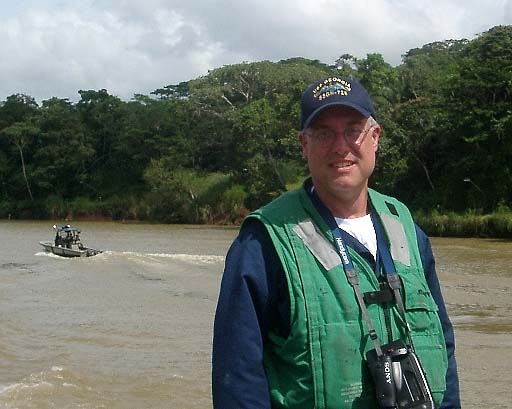skip to main |
skip to sidebar
John Leo on Bioethics
The great John Leo, in the March 28th issue of Townhall.com has a great piece on the current state of bioethics, Red and blue bioethics. First we start with the contempt that our black-robed oligarchy has toward Congress, you know, the guys who write the laws that the Judges are supposed to follow.Think of the Terri Schiavo case as another red-versus-blue issue. Congress, Republican-dominated and therefore mostly red, asked the federal courts to take a fresh look. The federal judiciary, in its customary imperial blue, contemptuously told Congress to take a hike. It wouldn't delay the execution for even a few days. For that, you need to be a convicted cop killer.
Color the mainstream media blue. Photos of pro-lifers usually show people who seem to be unbalanced, waving Bibles, rolling their eyes crazily—right out of the playbook for antiabortion coverage. The nearly identical headlines in several papers saying, "How the Personal Became the Political," reflect a media consensus that the antideath side is intruding where it doesn't belong. The verb "placate" is overused to indicate that this is just politics and Republicans are humoring those zany evangelicals. ABC and CBS are under fire from red bloggers for conducting what critics consider "push polls," i.e., public-opinion surveys constructed to achieve the correct pro-death result. Disability-rights activists are an important constituency defending Schiavo's right to live, but since journalists cannot afford to depict them as unbalanced or foolish, they have been rendered almost invisible.
The meat of the matter,Bioethics has hardened into an activist ideology that pervades the medical world, the schools, and government. This explains why Leon Kass, a moderate conservative who heads the president's committee on bioethics, is under such fierce attack and why Princeton University picked Peter Singer as its first scholar in bioethics. Singer thinks parents should be able to kill disabled newborns.
Among bioethicists, Kass says, "there is a kind of condescension toward the views of the general public [and] a very real danger that what constitutes meaningful life among the intellectual elite will be imposed on people as the only standard by which the value of human life is measured." Under pressure from bioethicists, norms have been collapsing. Fifteen years ago, as author Wesley Smith writes in his 2002 book The Culture of Death, legally assisted suicide was unthinkable. So was harvesting the organs of terminally ill patients, which is done today and approved by bioethicists.
Pushing the culture toward outcomes previously considered immoral is routine in bioethics. The Rev. Richard Neuhaus, editor-in-chief of the nation's best religious journal (First Things), wrote, "Thousands of ethicists and bioethicists, as they are called, professionally guide the unthinkable on its passage through the debatable on its way to becoming the justifiable, until it is finally established as the unexceptional."
All emphases in the above quotes are mine.






No comments:
Post a Comment